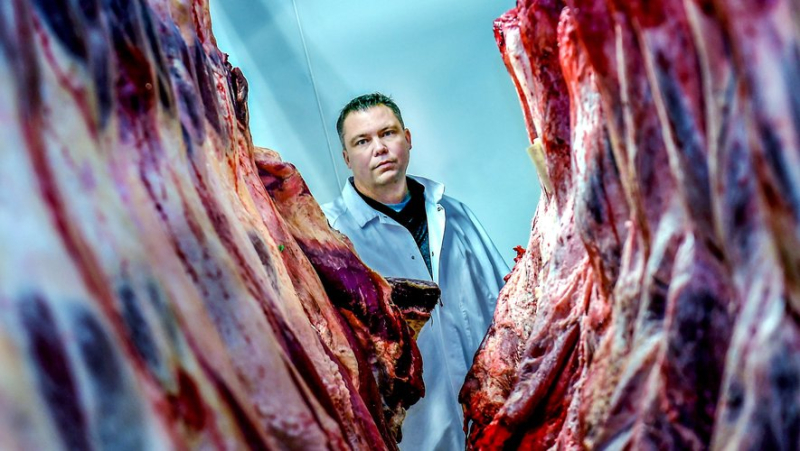Boris Martinez: “I wonder if there is a desire to save the Alès slaughterhouse”

Boris Martinez, directeur de Saveurs des Cévennes Midi Libre – Alexis Béthune
Ce mercredi 13 mars, le tribunal de commerce de Nîmes va se prononcer sur le futur de l’établissement.
The Nîmes commercial court is preparing to rule on the future of the Alès slaughterhouse.
Boris Martinez, director of Saveurs des Cévennes, formerly Alès meat, a company specializing in the meat trade, expresses his incomprehension at a time when the establishment is under threat: "The Égalim law, initially intended to strengthen the balance in commercial relations between suppliers and distributors, ultimately resolved nothing. This law is not suitable for small producers. Only the big ones, the label holders, are getting by. That’s part of the problem. With a label, we can align with public orders and easily recover 400 tonnes of meat. If we want to restart the slaughterhouse, that's one avenue."
A lack of real commitment from elected officials outside of Alès
When it comes to responding to public contracts, particularly those of the Department, at least 40% of purchases must be made within the framework of this law.
Since 2015, a group of 25 Gard colleges, out of 55 in total, has purchased products from Lozère meat (the Alésiens' competitor), including the central kitchen of Barjac, a commune championing local production and short sectors.
"This means that no Alès producer, nor the slaughterhouse is working. 25 colleges, with 3 or 400 students on average, that's meals, therefore meat to be delivered. Selling Gard meat in Lozère or Ardèche is not possible. In these departments they know how to be united, unlike us."
The JBD and Prévert high schools, the Alès hospital, and the Bagnols-sur-Cèze establishments work with the Alès company. "The town hall of Alès does everything to highlight local production, but private companies like Terres de cuisine which manage the central kitchen of Alès, go where they find the cheapest. It’s like mass distribution. Until the 2010s, we supplied Leclerc, Hyper U. Cora was the last brand to work with us, five years ago. They made nearly 140 tonnes per year. Today, keeping the local fabric alive is not the stores’ priority. Only the price matters."
Protectionism measures
Another avenue to explore with the Chamber of Agriculture, the slaughter of Camargue bulls. "It's been 20 years since we try to do it, but it’s complicated. When the cattle have gone beyond La Calmette, we lose the AOC if we kill in Alès. This is a measure of protectionism by the Tarascon slaughterhouse." A situation widely known to elected officials but which has never been postponed in question.
If in the speeches all elected officials, from all sides, from all communities call for their (pious ?) wish for unity to save the slaughterhouse, in fact Max Roustan, the mayor of’ rsquo;Alès, remains alone on the front line. For many years, it has supported the deficit, lost investments of several million euros, and warnings from the Regional Court of Auditors which calls for the closure of the deficit structure.
"I wonder if there is a desire to keep the last CE approved slaughterhouse in Gard" , asks Boris Martinez.
Cathy Chaulet: “It’s complicated”
&Elected to the Department and delegated to the development of organic and short circuits, Cathy Chaulet hopes that "the slaughterhouse will continue its activities. This tool must be kept close by. to guarantee quality meat."
Passé the usual formulas, the concrete proposals for the safeguarding of the establishment are less obvious: "C&rsquo ;is complicated. We have a dilemma with the regulation of public procurement. The terms short circuit, territory, local production, are banned. The Department is subject to the Public Procurement Code and tries to adapt while remaining within the framework of legality. That’s the whole difficulty. Legislation would be needed to change the regulations. The food exception would really have to be one to move the lines. It is true that 25 Gard colleges form a purchasing group, but the others consult and buy where they belong. they want."
I subscribe to read more




